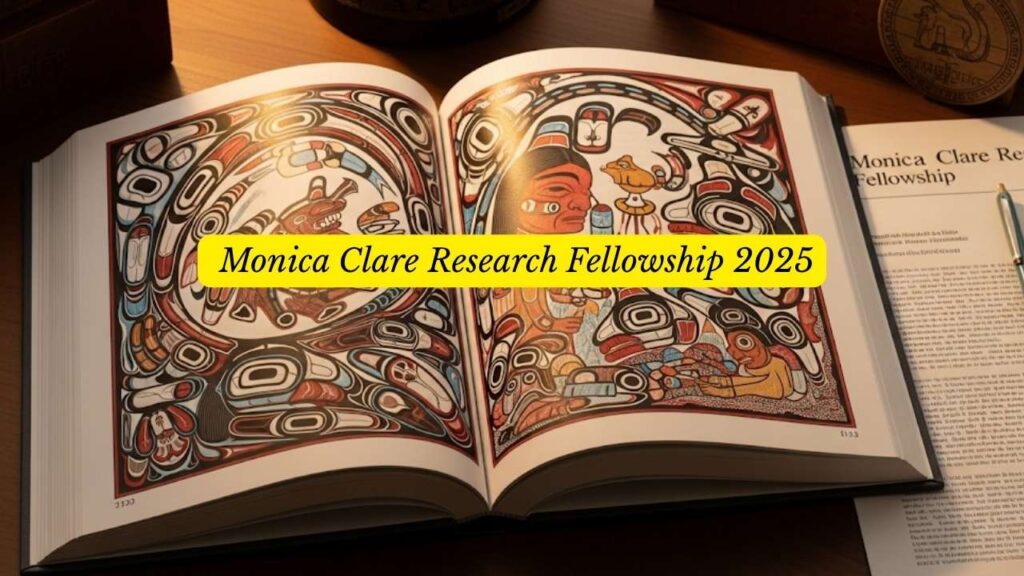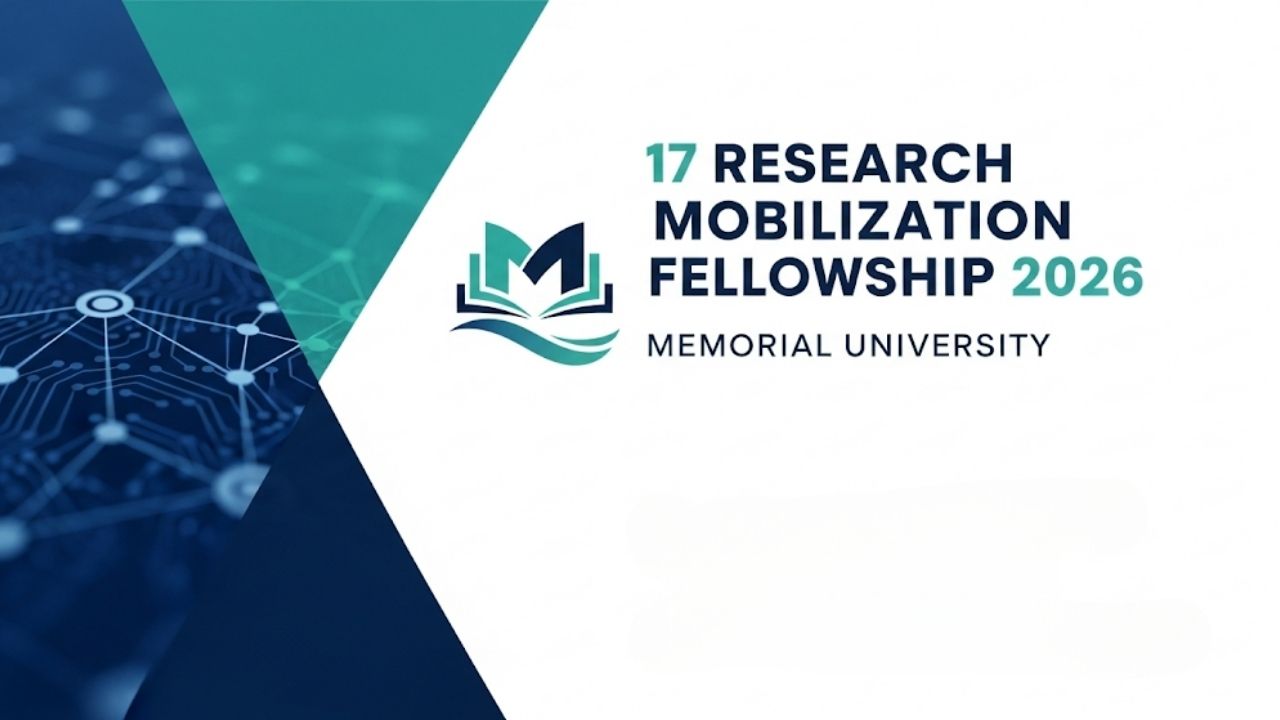The Monica Clare Research Fellowship 2025 is now officially open, presenting an unparalleled opportunity for Aboriginal and/or Torres Strait Islander individuals to delve into Queensland’s rich Indigenous histories and cultures. As a seasoned writer who has seen countless researchers navigate the fellowship landscape, I can tell you that opportunities like this are truly transformative. This prestigious fellowship isn’t just about funding; it’s about empowering voices, unearthing vital narratives, and contributing to a deeper understanding of Australia’s past and present. If you’re passionate about research, history, or storytelling, this guide is designed to help you successfully navigate the application process and make your research dreams a reality.

The Monica Clare Research Fellowship
The Monica Clare Research Fellowship is an annual award dedicated to supporting Aboriginal and/or Torres Strait Islander individuals in exploring and creating new knowledge about Queensland’s Aboriginal and Torres Strait Islander histories and cultures. Named in honor of Monica Clare, a pivotal political activist and the first Indigenous woman in Australia to publish a novel, “Karobran” (1978), this fellowship embodies a commitment to ethical and inclusive storytelling. It offers a powerful platform to amplify Indigenous perspectives and insights, utilizing the invaluable resources of the John Oxley Library and the State Library of Queensland.
What the Fellowship Offers
This fellowship provides significant support for your research journey, ensuring you have the resources and environment to thrive.
- Generous Stipend: A $20,000 stipend is awarded to support your research, enabling you to dedicate focused time and effort to your project without financial constraints.
- Dedicated Workspace: Fellows gain access to a personal work space within the Neil Roberts Research Lounge at the State Library, providing a quiet and conducive environment for deep research.
- Exclusive Collection Access: You will receive priority access to the State Library’s extensive Aboriginal and Torres Strait Islander collections, along with invaluable support from expert library staff. This access is crucial for thorough, nuanced research.
- Platform for Dissemination: Beyond the research itself, the fellowship offers a unique opportunity to amplify your work within Queensland’s cultural and academic circles, allowing your findings to reach a wider audience and spark important conversations.
- Mentorship and Networking: While not explicitly stated as a core benefit, the close ties with the State Library of Queensland and engagement with past fellows often lead to invaluable mentorship and networking opportunities within the research community.
Who Can Apply for the Monica Clare Research Fellowship?
The Monica Clare Research Fellowship is specifically designed for individuals who identify as Aboriginal and/or Torres Strait Islander. The eligibility criteria are broad, encouraging a diverse range of applicants who are passionate about contributing to Indigenous knowledge.
- Identity: Applicants must identify as Aboriginal and/or Torres Strait Islander. Confirmation of Aboriginal or Torres Strait Islander Descent or a Letter of Confirmation from an incorporated community organisation is required as part of the application [Source: State Library of Queensland Fellowships Application Form].
- Residency: You must be an Australian resident, including interstate residents. While flexibility exists, it is expected that a portion of your fellowship will occur onsite at the State Library of Queensland in Brisbane.
- Project Scope: The fellowship welcomes proposals from any discipline or professional background, including researchers, artists, creatives, filmmakers, digital media practitioners, musicians, composers, curators, arts professionals, writers, and independent scholars. The key is that your project must involve research using State Library’s collections, specifically aimed at developing new insights into Queensland’s First Nations history and culture.
- Individual or Co-Applicants: Applications can be submitted by individuals or by co-applicants (a maximum of two individuals).
- Existing Projects: Projects that have already commenced or are partly funded through another body are still eligible. If your project has received other funding, you must indicate this in your application. State Library of Queensland – Monica Clare Research Fellowship
It’s important to note that University or Australian Research Council (ARC) funded researchers and research teams are generally not eligible. Similarly, projects that are a component of postgraduate studies are not eligible.
Crafting a Winning Application: Your Path to Success
Applying for a prestigious fellowship like the Monica Clare Research Fellowship requires careful thought and meticulous preparation. From my experience advising aspiring fellows, the key lies in clearly articulating your vision and demonstrating how your project aligns with the fellowship’s objectives.
Understanding the Selection Criteria
The judging panel will assess applications based on several key selection criteria. Familiarizing yourself with these will help you tailor your application effectively:
- Significance: How does your proposed project contribute new and meaningful knowledge to Queensland’s Aboriginal and Torres Strait Islander histories and cultures? What is its broader impact?
- Collection Use and Creation: How will you utilize or contribute to the John Oxley Library or State Library collections? This is crucial, as the fellowship emphasizes the use of these invaluable resources.
- Impact: What are the anticipated outcomes of your research, and how will it benefit the community or broader understanding?
- Viability: Is your project well-planned, achievable within the fellowship’s timeframe, and do you have the necessary skills and resources to execute it successfully?
Essential Application Components
Your application will typically require the following elements:
- Short Biographical Statement and CV: This should be concise (maximum 150 words for the bio and 3 A4 pages for the CV) and highlight your experience, skills, and achievements relevant to your proposed research.
- Project Description and Relevance: Provide a clear, succinct description of your project and its significance. Explain why this research matters and how it aligns with the fellowship’s aims.
- Collection Use: Detail specifically how you intend to use or contribute to the John Oxley Library or State Library collections. Be specific about the resources you have identified.
- Project Goals, Scope, and Timelines: Outline the activities, milestones, and a realistic timeline for your project. This demonstrates your planning and viability.
- Anticipated Outcomes: Clearly state what you expect to achieve by the end of the fellowship.
- Referees: You will typically need to provide details for three referees who can speak to your research capabilities and character.
- Other Funding/Project Status: If applicable, provide details of any other funding sources or the current stage of your project.

Tips for a Standout Application
- Start Early: The application period for the 2026 Queensland Memory Awards (which includes the Monica Clare Research Fellowship) generally closes around August 1st, 2025 [Source: State Library of Queensland]. Give yourself ample time to refine your proposal, gather supporting documents, and solicit feedback.
- Attend Information Sessions: The State Library of Queensland often hosts online information sessions for the Queensland Memory Awards, including a dedicated segment for the Monica Clare Research Fellowship. For example, a session is scheduled for Tuesday, July 15, 2025, providing insights into the application process and tips for success [Source: Eventbrite]. Attending these can provide invaluable clarity and direct answers to your questions.
- Be Specific About Collection Use: Don’t just say you’ll use “the library’s collections.” Research the John Oxley Library and State Library’s holdings and identify specific archives, photographs, oral histories, or published materials that are directly relevant to your project. This demonstrates thorough preparation. State Library of Queensland – Queensland Memory Awards

From Application to Impact: What Comes Next
If successful, becoming a Monica Clare Research Fellow is just the beginning. The fellowship not only supports your research but also provides a platform for you to share your findings and contribute to the broader conversation. Past fellows have produced insightful blogs, presentations, and publications, enriching the collective knowledge base. Eventbrite – Queensland Memory Awards: Fellowships Online Information Session
Rachel West-Captain, a 2021 Monica Clare Research Fellow, shared her experiences and findings on her project, “A Murruwarri Family of South West Queensland and North West New South Wales – The ‘West & Captain’ Family – Aboriginal History Research.” Her journey exemplifies the transformative power of this fellowship. You can find her insights and presentations on the State Library of Queensland’s website and YouTube channel.
Looking Ahead
The Monica Clare Research Fellowship is more than just a grant; it’s an investment in Indigenous knowledge, cultural preservation, and the future of storytelling. By applying, you are not only pursuing your research aspirations but also contributing to a vital lineage of truth-telling and historical reinterpretation.
Take the time to reflect on your research idea, align it with the fellowship’s mission, and pour your passion into your application. This could be the opportunity to unlock incredible doors for your research journey. Start preparing your application now, and join a distinguished group of fellows who are shaping our understanding of Queensland’s rich Indigenous heritage.
Charting Your Path to Impact: The GDF Conservation and Communities Fellowship 2025
FAQ
Q1: Can I apply for the Monica Clare Research Fellowship if my project has already started?
A1: Yes, projects that have commenced or are partly funded through another body are eligible. You will need to clearly indicate this in your application.
Q2: Do I need to be an academic or employed as a researcher to apply for the Monica Clare Research Fellowship?
A2: No, you do not. The fellowship is open to individuals from any discipline or professional background, including creatives, writers, and independent scholars, as long as they meet the eligibility criteria and their project involves research using State Library collections.
Q3: How do I prove my Aboriginal and/or Torres Strait Islander descent for the application?1
A3: Applicants are required to submit one of the following: Confirmation of Aboriginal or Torres Strait Islander Descent/Letter of Confirmation with a common seal from an Aboriginal or Torres Strait2 Islander incorporated community organisation, or a Confirmation of Aboriginal or Torres Strait Islander Descent statutory declaration form.
Q4: Is there an age limit for applicants to the Monica Clare Research Fellowship?
A4: There is no specific age limit mentioned in the eligibility criteria for the Monica Clare Research Fellowship. The focus is on the quality of the research proposal and the applicant’s ability to undertake the project.
Q5: Can I use collections from other institutions besides the State Library of Queensland?
A5: While the fellowship strongly emphasizes the use of the State Library’s collections (specifically the John Oxley Library), relevant archives or collections in other cultural institutions and companies can also be used as part of your research. However, your proposal should clearly outline how you will primarily engage with the State Library’s resources.










